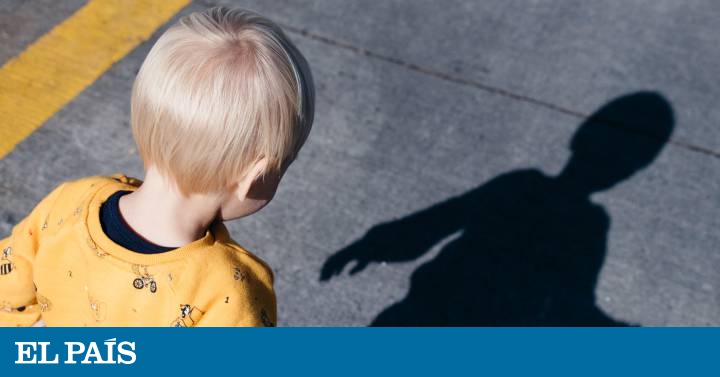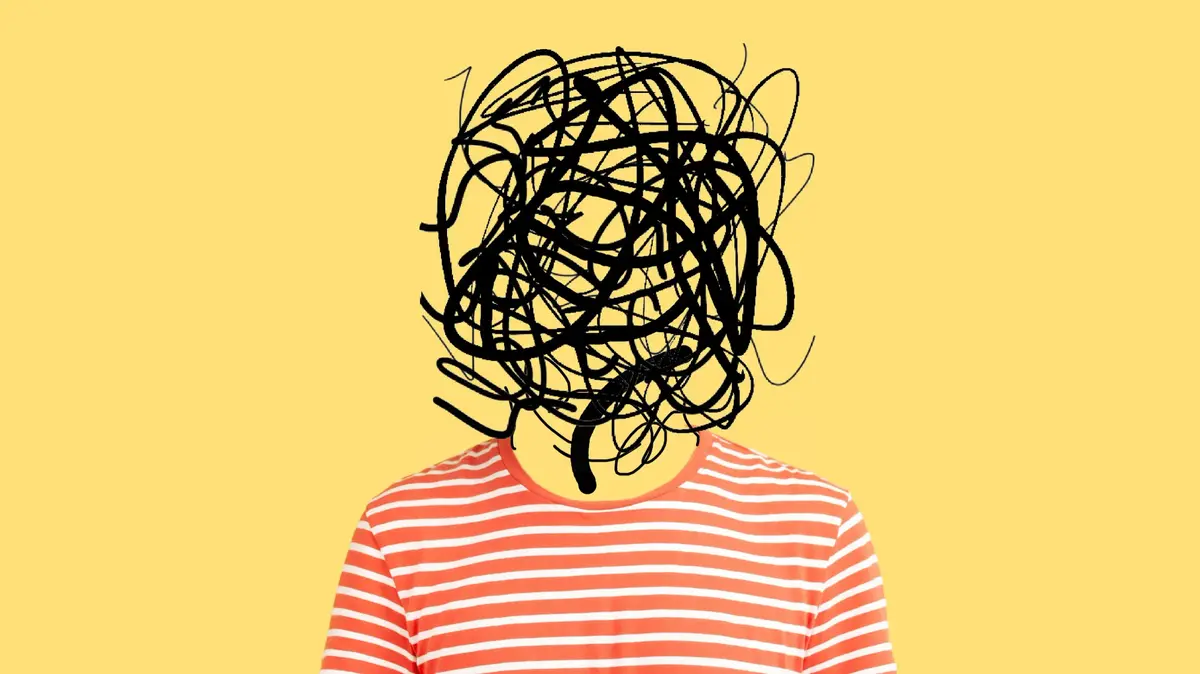MORE INFORMATION
'The dilemma' | The most recurring question among parents: if I point the child to camp, will he become infected?
The danger of labeling children: "Don't call me that, you make me feel very small!"
Attention deficit, hyperactivity and impulsivity are the three characteristics that many homes in Spain have suffered with special virulence during the pandemic, confinement and the subsequent return to atypical normality. It is estimated that the Attention Deficit Hyperactivity Disorder, which this Monday July 13 commemorates its International Day, affects 6.8% of the Spanish school population. Children and adolescents who for months have seen their interaction and support at school, their social relationships, physical activity and, sometimes, their therapies and monitoring to treat this neurodevelopmental disorder reduced. The recent study of Mental Health in Children and Adolescents in the covid-19 era, prepared by the Platform of Associations of Psychiatry and Clinical Psychology for the Mental Health of Children and Adolescents in Spain, warns of the possible emotional consequences for the smallest and the peculiarities of children and young people with ADHD.
According to this report, in one of the first studies that has analyzed the consequences of confinement among the Chinese child population with Attention Deficit Hyperactivity Disorder (sample of 241 families), an increase in acute stress, changes in behavior and children's mood. The researchers highlighted how parents' uncertainty, anxiety, and stress could influence them. “Children with ADHD cannot receive timely and professional care at home. It could be assumed that most of the parents of these children are not experts in the matter, but an educational responsibility is imposed on them, in addition to managing all the emotional and behavioral problems of the children, 24 hours, seven days a week. On the other hand, adult concern about the crisis may further exacerbate children's psychological well-being and worsen their behavioral problems, "the authors warned.
And this if we refer to the families of children with confirmed ADHD and parents who previously received psychoeducational counseling to accompany their children and tele-assistance from therapists during the months of confinement. But there are also cases of minors who were under evaluation before the pandemic. For them, a possible pharmacological or psychological treatment has been delayed, and they have been able to worsen, especially in the adolescent stage, when there is an imbalance between the development of their "emotional and impulsive brain" and the rational brain, which can cause an increase of challenging and disruptive behaviors.
“Most of the families of minors with ADHD have suffered frustration, impotence and stress, which is closely related to the emotional dysregulation of these children. At this time, family dialogue is necessary more than ever, especially with adolescents. It is necessary to explain clearly what we need or want from them, because they are intelligent and in most cases they want to please their parents, they do not seek conflict. They just need to be clear about what is expected of them and open spaces so that they can also express how they feel or what worries them, "says psychiatrist Abigail Huertas, spokesperson for the Spanish Association of Child and Adolescent Psychiatry (AEPNyA), which recommends “Save mental energy” at home. "You have to put yourself in 'survival mode' in terms of family limits and rules. In this time of crisis we should be angry about serious things, not about a sock on the floor. And at the same time facilitating coexistence with routines: maintaining good sleep hygiene, sleeping with the blinds raised so they wake up early in the sunlight, fewer hours of screens and more physical exercise this summer, establishing clear guidelines and tasks, specific, such as housekeeping and housekeeping, that can keep your attention for short periods of time. "
School online with ADHD
In addition to behavior and coexistence problems, another of the difficulties students with ADHD have encountered has been the closing of schools. If it could be difficult for them to keep the attention and concentration focused on their flesh and blood teacher, attending the classes online has been an unprecedented challenge.
“The parents have tried to weather the storm as best they can, without resources and putting patches, like leaving them alone with the computer or the tablet , trusting that they would attend the classes, because at the same time they had to telework and run the house. In many cases it has not been possible to give the children the support and methodological adaptation they had at school, nor have we been able to continue with face-to-face therapies. In addition, the lack of physical activity has also affected them cognitively: when they play sports, they are more open to learning. If there is no physical activity, attention is reduced and more when it comes to sitting in front of a computer camera, "says Dr. Iban Onandia, an ADHD neuropsychologist.
In most cases they have missed four months of class, extracurricular activities and organized sport. But the long summer and the uncertain return to school in the fall do not improve the academic prospects of these children. According to a 2017 study, which looked at the performance of 766,244 schoolchildren with ADHD in Scotland, these children may have worse test scores, adjustment difficulties at school, more special educational needs, and increased truancy and dropout rates.
The involvement of families, health professionals and teachers will be key so that their reincorporation next year does not leave anyone behind. Recommendations for preparing to go back to school include clearly dividing study time and leisure time, prioritizing the quality of what has been learned over the number of hours in your chair, alternating physical activity (such as squats, pedaling or mindfulness exercises ) and cognitive activity, and read the syllabus aloud or look for the explanation in video tutorials that replace the hard reading of the subject on paper.
“One of our concerns is that when schools are reopened, they try to give content in a month that has not been taught in four months. This is going to be a problem, not just for kids with ADHD, but anyone with learning difficulties. We know that there is a time, in the first third of High School, when many children with ADHD “unplug” from school. In the long term, and this is the sad thing, what we will see will be fathers who are “professionalized”: I have known many cases of families, especially mothers who ask for leave, who almost drop out of secondary school again to explain the agenda at home. Parents who study their children's subjects, prepare diagrams, record videos to make it more attractive and interesting. And the problem is that that should be a methodological and not a familiar response. Schools without more endowments and resources, without enough teachers, without specific training and without interest in ensuring the learning of these minors present a scenario in which we may be missing a great opportunity to improve the educational system, ”concludes Dr. Onandia.
Six Tips for Parents of ADHD Kids in Times of Coronavirus
The European Group on ADHD Guides (EAGG) has recently published a guide on managing ADHD during the pandemic, which in addition to behavioral strategies summarizes six tips for parents:
You can follow De mamas & de papas on Facebook, Twitter or subscribe here to the Newsletter.








